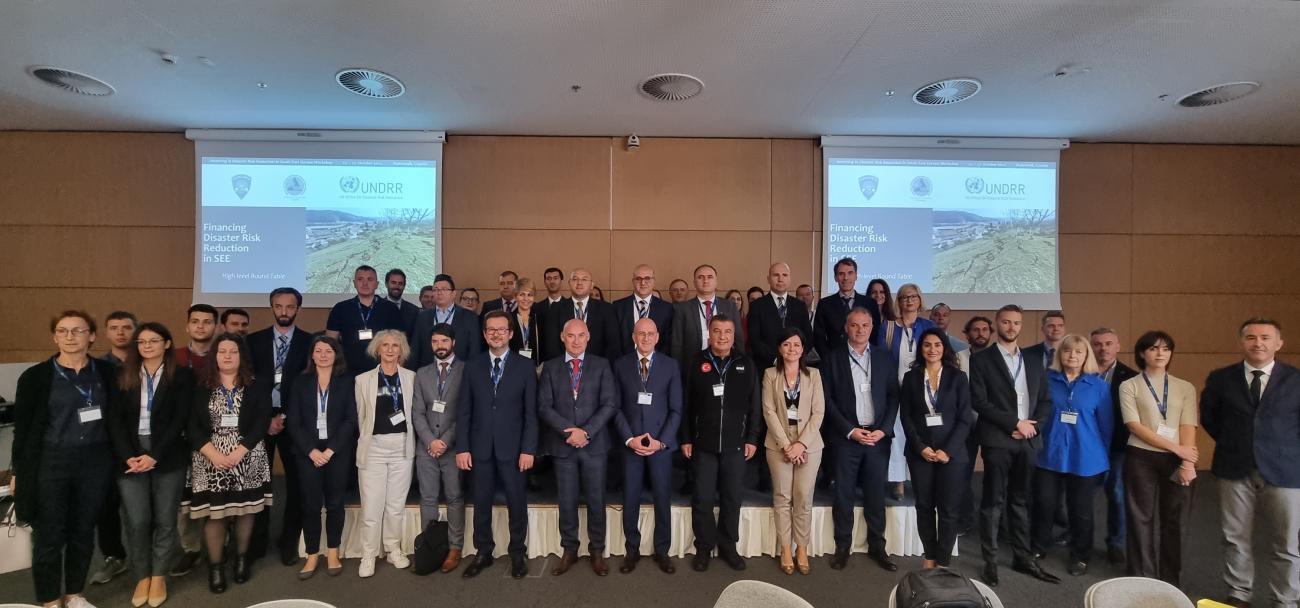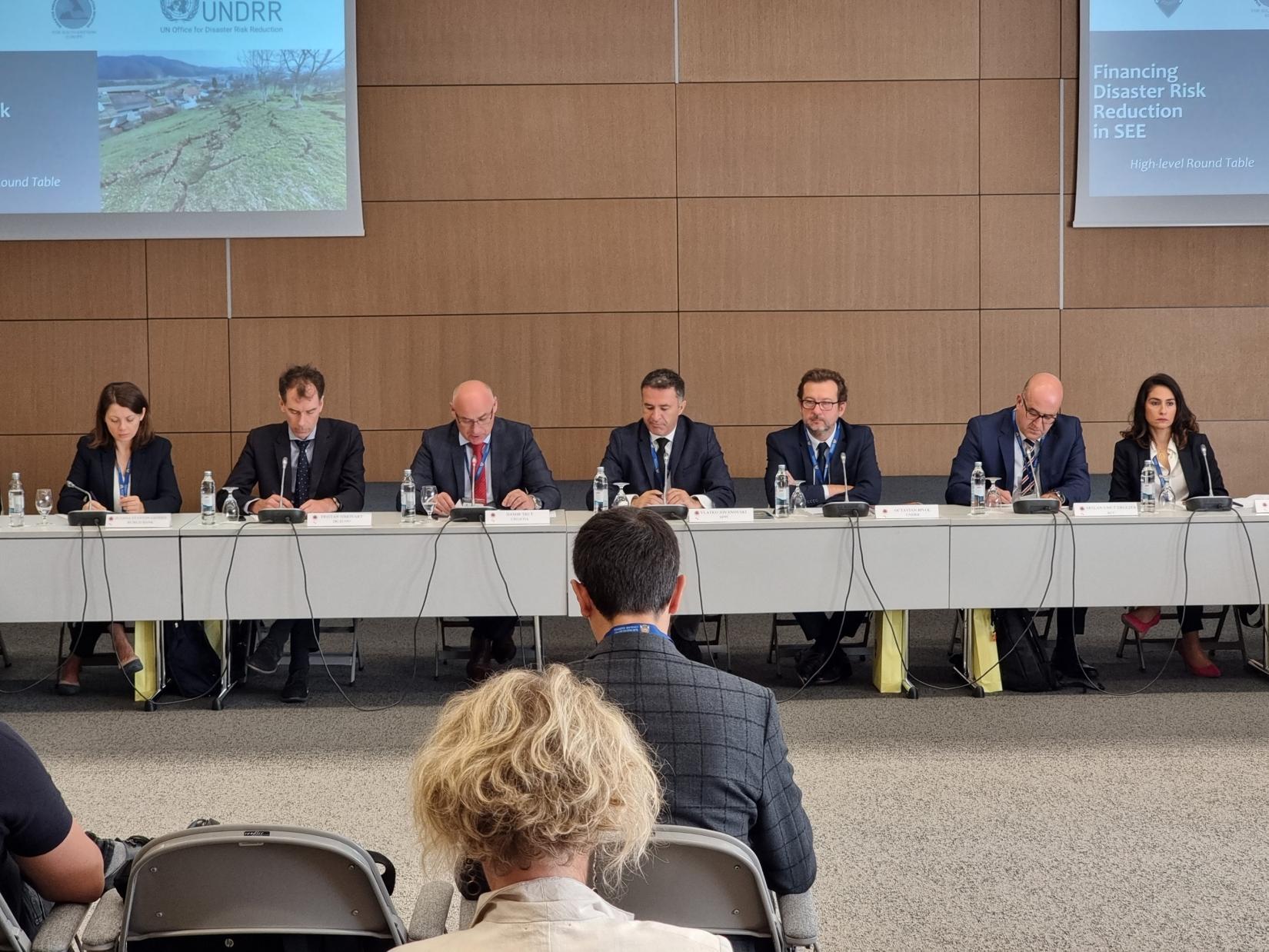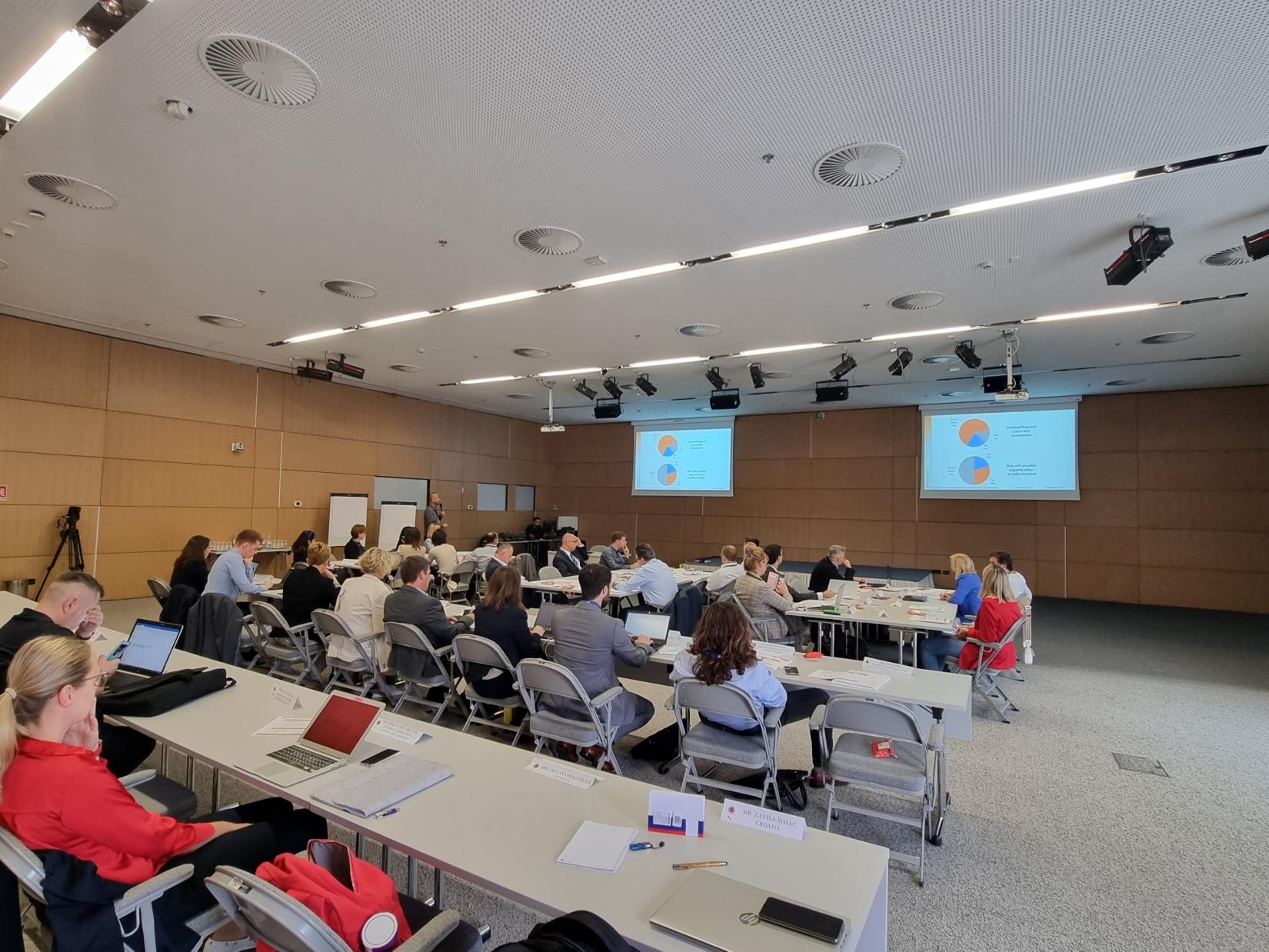High-level officials from South-Eastern European countries gather in Dubrovnik to discuss investments in disaster risk reduction

Workshop on ‘Investing in Disaster Risk Reduction in South-Eastern Europe’
Heads of Disaster Management Authorities, as well as international organisations, gathered for a High-Level Roundtable discussion to open the 3-day workshop on ‘Investing in Disaster Risk Reduction in South-Eastern Europe’ today in Dubrovnik, Croatia.
The workshop, which is part of a series of ‘European Roadmap for Disaster Risk Reduction (EFDRR) Roadmap 2021-2030’ action-oriented dialogues, was co-organized by the Civil Protection Directorate of the Ministry of Interior of Croatia and the Disaster Preparedness and Prevention Initiative for South-Eastern Europe (DPPI-SEE), with support from the United Nations Office for Disaster Risk Reduction (UNDRR). It focuses on the implementation of the third priority of both the globally agreed ‘Sendai Framework on Disaster Risk Reduction 2015-2030’ and the regional ‘EFDRR Roadmap 2021-2030’, which is to increase investments in disaster risk reduction (DRR) and resilience.
Currently, many governments do not prioritize DRR sufficiently because they see it as a cost for an event that might never happen. However, greater investments in DRR not only save lives and livelihoods, but also provide huge savings in terms of avoided future losses and reconstruction costs - and create economic sustainability and growth opportunities. Knowledge, data, and capacities to understand risk must be integrated into all stages of planning across sectors, so that all decisions and investments are risk-informed and support improved resilience.
The 3-day event began with a High-Level Roundtable, including participants from all DPPI-SEE countries and international organisations, focused on sharing experiences, and identifying proposals and solutions for supporting increased investments in resilience in line with the Sendai Framework.
DPPI Executive Secretary Mr. Vlatko Jovanovski moderated the high-level discussion where Mr Damir Trut, General Director at the Civil Protection Directorate, Ministry of Interior of Croatia, said: “Prioritising DRR investments is not an easy task, but it is an important one. Knowing risks, respecting the research-based recommendations of the scientific community and cooperating on all levels and throughout all sectors is the only way to approach it. Financing is the main enabling factor here – we must discuss more about it and learn the language to mainstream DRR into the financing sector even further.”
Mr. Octavian Bivol, Chief of the Regional Office for Europe and Central Asia, highlighted: “A ‘Think Resilience’ approach must be applied to ensure all investments are not only sustainable but also resilient. This includes integrating DRR and resilience into financial sector investment decision-making and public procurement processes, and national fiscal frameworks, and developing dedicated national DRR financing strategies. This relies in turn on strengthened risk knowledge and data, and capacities.”
Technical-level sessions will continue until Thursday, bringing together experts across civil protection, finance, and development sectors to explore different modalities, experiences, and benefits of investing in DRR in South-Eastern Europe, and share best practices from within and beyond the region.
This will include presentations on small and medium enterprises’ resilience, climate and disaster risk-informed decision-making, and resilient infrastructure, and group exercises, which will support day-to-day work of participants in their respective governmental institutions and showcase the benefits of inter-sectoral cooperation for comprehensively planning and risk-informing investments. These work-streams will also contribute to the core ARISE Focus Areas and Key Performance Indicators (KPIs) 2022-2025.


Background information
About the EFDRR Roadmap 2021-2030
The European Forum for Disaster Risk Reduction Roadmap 2021-2030 supports the Sendai Framework's coordinated implementation of disaster risk reduction and related Paris Agreement and Sustainable Development Goals. The Roadmap 2021-2030 builds on the 2015-2020 Roadmap and lessons from the Covid-19 response and recovery. The new Roadmap recommends four action areas for accelerating the implementation of the Sendai Framework’s priorities and to create a more disaster-resilient region by 2030:
- Understanding and communicating existing, emerging and future systemic risks;
- Inclusive and collaborative systems for governance and decision-making;
- Supporting investments in resilience;
- Preparedness for response and resilient recovery.
Find out more here.
About the EFDRR Action-oriented Dialogues
The EFDRR Roadmap action-oriented dialogues are a series of multilateral thematic dialogues led by governments, in partnership with UNDRR, aimed at sharing experiences and developing adapted policies and actions to address pressing disaster risk reduction-related issues, and to enhance transboundary cooperation to accelerate the implementation of the Sendai Framework for Disaster Risk Reduction 2015-2030.
For additional information, please contact:
Mr. David Baker, UNDRR Regional Office for Europe & Central Asia: david.baker@un.org
Ms. Nataša Holcinger, Civil Protection Directorate, Ministry of Interior of Croatia: nholcinger@mup.hr


